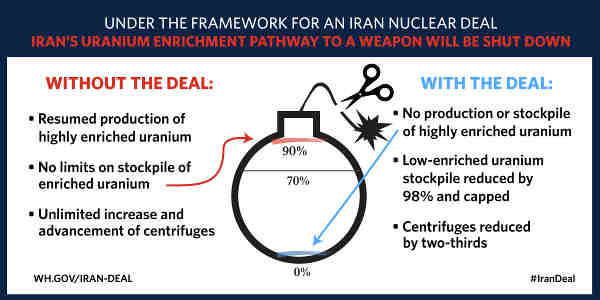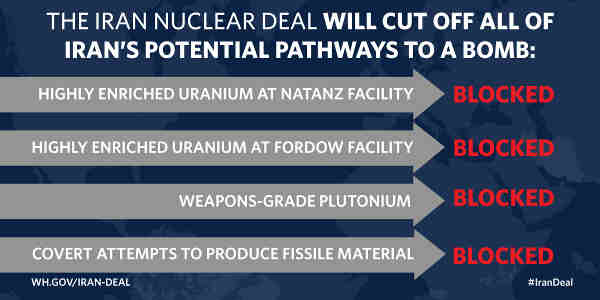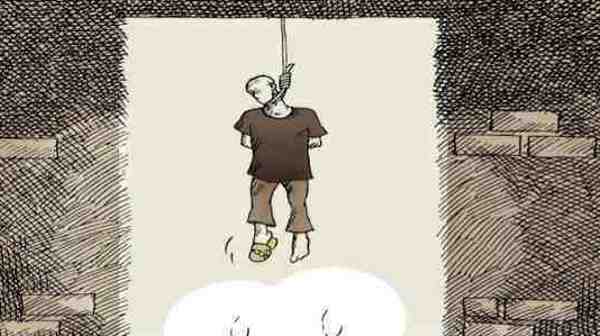Plan to Prevent Iran from Getting a Nuclear Weapon

While the Republican opposition is getting under President Obama’s skin on his nuclear agreement with Iran, Obama has dismissed the dissenting views saying the criticism of the deal needs to stop.
Obama said that American people and he himself are convinced that if the proposed framework is implemented, it will make “our countries, our allies, and our world safer.”
However, Republicans have raised some serious doubts about the proposed deal. GOP Sen. John McCain said there is a marked difference in the two versions of the nuclear agreement in that the one described by Iran’s supreme leader is different from that of the Obama administration.
Moreover, 47 Republican senators have sent a letter to Iran’s leaders saying that Obama is signing the deal in his personal capacity and it won’t have any sanctity when Obama leaves the office.
The White House, on the other hand, has explained various features of the agreement to defend administration’s decision.
According to the White House, the P5+1 – the United States, the United Kingdom, France, China, Russia and Germany – in coordination with the European Union secured a framework for a Joint Comprehensive Plan of Action (JCPOA) that lays out various solutions to be included in a long-term, comprehensive understanding with Iran.
The JCPOA will verifiably prevent Iran from acquiring a nuclear weapon and ensure that Iran’s nuclear program will be exclusively peaceful going forward, according to a White House statement.
The statement explains that the JCPOA will work by:
- Increasing the time it would take Iran to acquire enough fissile material for one bomb from an estimated 2-3 months to at least 1 year if Iran dashed for a bomb
- Reducing Iran’s stockpiles of enriched uranium
- Reducing the number of Iran’s installed centrifuges by two-thirds
- Limiting the types of centrifuges that Iran can use to enrich uranium
- Preventing Iran from producing weapons-grade plutonium that could be used for a bomb
- Tracking Iran’s nuclear activities with unprecedented transparency and robust inspections throughout its nuclear supply chain
Prior to the implementation of the Joint Plan of Action (JPOA) that was reached in November 2013, Iran had a stockpile of 20% enriched uranium, a type of fissile material that can more easily be converted into weapons-grade uranium. Thanks to that JPOA, that stockpile has been significantly reduced, said the statement.

The new JCPOA framework is expected to reduce this 20% enriched uranium to zero; reduce Iran’s low-enriched uranium stockpile by 98%; reduce the number of Iran’s centrifuges that are currently installed by two-thirds; and limit the types of centrifuges that Iran can use to enrich uranium.
That means the pathway to a bomb through highly enriched uranium will be shut down, Obama administration hopes.
Image / Video courtesy: White House






